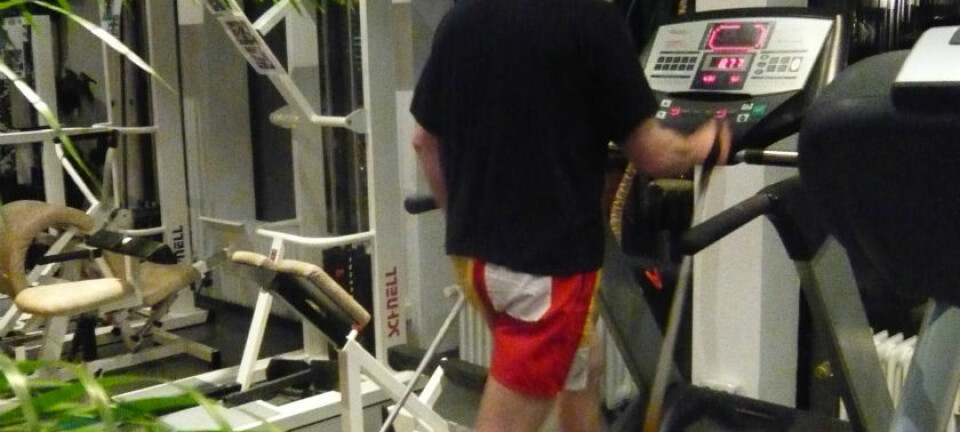
With exercise, sometimes less is more
Moderately overweight people do not lose more weight by exercising 60 minutes. Shorter exercise sessions make people more active throughout the day, says researcher.
The more time you spend on the treadmill, the more energy you consume, and that should lead to a greater weight loss in the long term. However, a new study suggests that there are many factors involved in weight loss other than just the minutes spent at the gym.
The study, published in the Scandinavian Journal of Public Health, shows that overweight people achieve the same weight loss by exercising 30 minutes as when they exercise for 60 minutes.
”When people exercise less, they have more energy to be active for the rest of the day. This causes a greater weight loss in the long term,” says Anna Sofie Gram, a PhD student at the Department of Biomedical Sciences at the University of Copenhagen, Denmark, who is the lead author of the study.
Greater weight loss despite less exercise
In the study, the interdisciplinary research team divided 61 moderately overweight (see Factbox) but otherwise healthy men, who were not used to exercising, into three groups.
When people exercise less, they have more energy to be active for the rest of the day. This causes a greater weight loss in the long term.
- Group 1 was asked to work out 60 minutes a day in a gym.
- Group 2 was asked to work out 30 minutes a day.
- Group 3 was asked not to change their lifestyle, and would thus make up the control group.
During the experiment, the men’s weight, blood sugar levels and energy use were measured.
After 13 weeks, having ensured that the participants had not changed their dietary habits, the researchers found that the two exercise groups experienced general health improvements, and that both groups had achieved the same weight loss, statistically speaking.
Less exercise gives more energy and positivity
Interviews conducted during the 13-week trial revealed how the participants experienced the exercise, how much energy they felt it gave them and how positive they were about exercising.
The shorter physical activity has opened up for something that was not evident in neither the 60-minute group nor the control group. There were indications that the 30-minute group was more likely to ride a bike to work, or to use the stairs at work rather than the elevator.
Here, the researchers found that group 2 – the 30-minute group – felt that they had more energy than group 1 – the 60-minute group. This is where the explanation is to be found, says Gram:
“Whereas the 60-minute group may have gone home and retired to their couch because they were tired, the other group felt cheerful and filled with energy for the rest of the day.”
Increased motivation with 30 minutes’ exercise
The interviews also revealed that the 60-minute group experienced the exercise as monotonous, exhausting and lengthy, whereas the 30-minute group felt an increase in motivation and greater positivity as a result of the exercise.
“The shorter physical activity has opened up for something that was not evident in neither the 60-minute group nor the control group,” she says.
”There were indications that the 30-minute group was more likely to ride a bike to work, or to use the stairs at work rather than the elevator.”
This suggests that people can get better results and be more motivated to live healthily if they do not push themselves too much when exercising.
Less can be more
According to Anne Sofie Gram, the new study is not only interesting for the individual, but also in a broader perspective:
”Our findings have a great potential in terms of public health prevention. When it comes to motivating a population to become healthier, it appears that sometimes less is more.”
She adds that people who are moderately overweight may experience other health problems in the long run:
”Many moderately overweight people end up becoming obese later on in their lives, and that can lead to a number of complications such as diabetes, cardiovascular disease, various cancers and an increased risk of depression.”
-----------------------
Read the Danish version of this article at videnskab.dk









